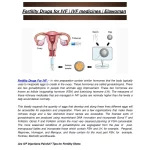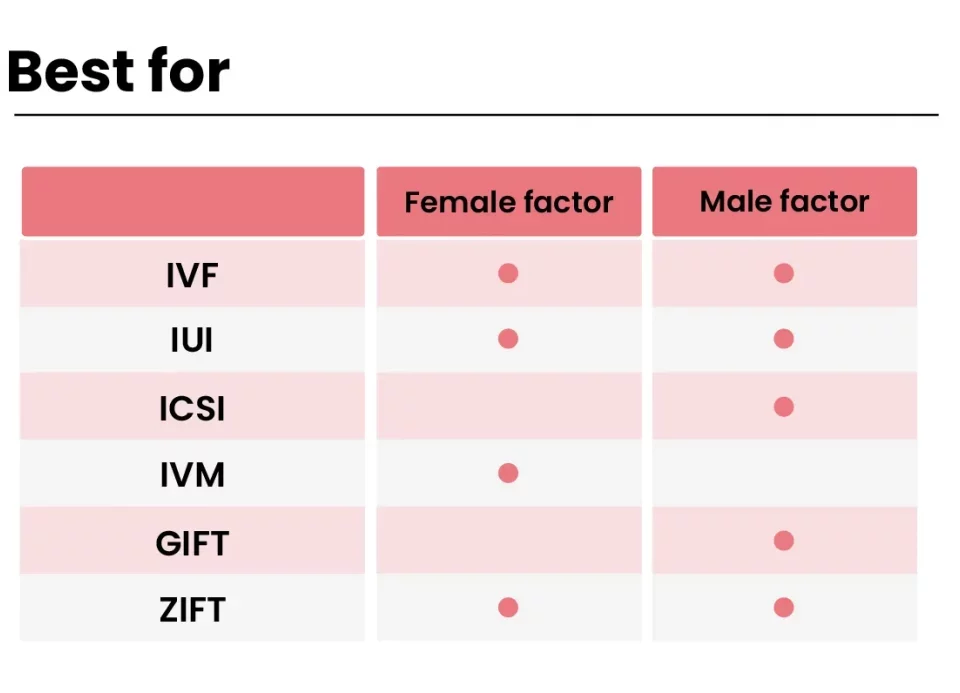
What Is the IVF Process? A Friendly, Step-by-Step Guide to In Vitro Fertilization
April 7, 2025
Can a Woman Self-Administer Fertility Drugs for IVF?
April 7, 2025Will the Catholic Church Baptize an IVF Baby?

Will the Catholic Church Baptize an IVF Baby?
When you’re expecting a little one—or even just dreaming of starting a family—questions about faith, tradition, and welcoming that child into your community can feel big. If you’ve gone through in vitro fertilization (IVF) or know someone who has, you might wonder: Will the Catholic Church baptize an IVF baby? It’s a question that stirs up curiosity, hope, and sometimes a bit of worry, especially for families navigating infertility and faith at the same time.
The short answer is yes, the Catholic Church will baptize a baby conceived through IVF—but there’s so much more to unpack here. The Church’s stance on IVF itself is firm, yet its love for every child, no matter how they came to be, opens the door to a deeper conversation. In this article, we’ll dive into what the Church teaches, how baptism works in this situation, and what it all means for families like yours. Along the way, we’ll explore real stories, fresh perspectives, and practical tips to help you feel confident and supported—whether you’re a parent, a godparent, or just someone asking big questions.
Why Does the Catholic Church Care About IVF?
The Catholic Church has a lot to say about how life begins, and it’s rooted in a belief that every human is a gift from God. To understand why IVF raises eyebrows in the Church, let’s break it down.
IVF is a medical process where doctors take eggs from a woman, combine them with sperm in a lab, and then place the resulting embryo into the womb. For many couples struggling with infertility, it’s a lifeline—a chance to hold a baby after years of longing. But the Church sees it differently. According to official teachings, like those in a document called Donum Vitae from 1987, conception should happen naturally through the love between a husband and wife in marriage—not in a lab with doctors and petri dishes.
The Church worries about a few things with IVF:
- Separation of Love and Life: It believes making a baby should be tied to the intimate, personal act of marriage, not a technical procedure.
- Embryo Dignity: IVF often creates extra embryos that might be frozen, discarded, or used for research—actions the Church sees as disrespecting human life, which it believes starts at conception.
- Playing God?: There’s a concern that IVF puts too much human control over something sacred.
So, the Church says no to IVF itself. But here’s where it gets interesting: that “no” doesn’t extend to the child. The baby born from IVF isn’t blamed or rejected. In fact, the Church insists every child is a blessing, full stop.
Baptism Basics: What’s It All About?
Before we connect IVF and baptism, let’s talk about what baptism means in the Catholic world. Picture it like a warm welcome party for a new member of the family—except this family is the Church, and the invitation comes from God.
In Catholicism, baptism is a sacrament—a special moment where a person is washed of “original sin” (a concept tied to humanity’s imperfections) and officially joins the Christian community. For babies, it’s usually a joyful ceremony with water, prayers, and proud parents promising to raise their little one in the faith. The Church sees it as a gift open to everyone, no exceptions.
So, if a baby is born through IVF, does that change the invitation? Not at all. The Church separates the act of IVF (which it disapproves of) from the child (who is loved unconditionally). This distinction is key—and it’s where many families find peace.
Can an IVF Baby Be Baptized? The Official Answer
Yes, an IVF baby can absolutely be baptized in the Catholic Church. This isn’t just my opinion—it’s backed by Church teaching and real-world practice. The Catechism of the Catholic Church (a big guidebook of beliefs) says every human has dignity from the moment of conception, no matter how that conception happened. That means an IVF baby is just as welcome at the baptismal font as any other child.
Priests and bishops have confirmed this over and over. For example, in a 2024 interview with Catholic News Agency, ethicist John Di Camillo explained, “The Church teaches that each human person is made in the image of God… welcomed, loved, and cherished, regardless of how they were conceived.” The child isn’t responsible for their parents’ choices, and baptism isn’t a reward for “perfect” conception—it’s a gift of grace.
Real Stories from Real Families
Take Sarah and Mike, a couple from Ohio. After years of infertility, they turned to IVF and welcomed twins in 2023. Sarah grew up Catholic and worried her church might turn her away. “I was scared to even ask,” she admits. But when she talked to her priest, he smiled and said, “Your babies are miracles, and we’d love to baptize them.” The twins were baptized last spring, surrounded by family and friends, no questions asked about IVF.
Then there’s Maria, a single mom in Texas who used IVF with donor sperm. She wasn’t sure where she stood with her parish, but her priest assured her, “God doesn’t care how your daughter got here—He cares that she’s here.” Maria’s little girl was baptized in 2024, and the congregation threw a small party afterward.
These stories show that, in practice, the Church opens its arms to IVF babies. Sure, some priests might ask parents to reflect on IVF or even confess if they feel it was a misstep—but that’s about the parents, not the child.
What Might Hold Things Up?
While the Church’s doors are open, baptism isn’t automatic. There are a few practical steps and expectations that apply to all families, IVF or not. Here’s what might come up:
- Parental Faith: The Church asks parents to promise they’ll raise the child Catholic. If you’re not practicing or don’t plan to, a priest might pause and ask why baptism matters to you. It’s not a “no”—just a conversation.
- Parish Rules: Some parishes want you to be registered members or attend a prep class. This isn’t about IVF—it’s standard stuff.
- Priest’s Approach: Every priest is human, and some might have personal hesitations about IVF. If one says no (super rare!), you can always talk to another priest or the diocese.
Quick Checklist: Are You Ready for Baptism?
✔️ Are you willing to raise your child in the Catholic faith?
✔️ Have you connected with your local parish?
✔️ Do you have godparents lined up who are practicing Catholics?
❌ Worried about IVF? Don’t be—it won’t stop the process.
If you hit a snag, don’t panic. Call your parish office or ask a friend who’s been through it. Most families find it’s a smooth road once they start.
The Emotional Side: Faith, Shame, and Joy
For Catholic couples who’ve used IVF, the journey can feel like an emotional rollercoaster. You might feel torn—grateful for your baby, but guilty about going against Church teaching. That’s normal, and you’re not alone.
A 2023 Pew Research survey found that 55% of white, non-Hispanic Catholics in the U.S. know someone who’s used fertility treatments like IVF. Yet only 13% think it’s morally wrong. That gap shows a lot of Catholics wrestle with this—and many choose IVF anyway, trusting their conscience. The Church even respects that inner voice, calling it a “core tenet” of faith in the Catechism.
Jamie Manson, president of Catholics for Choice, puts it beautifully: “The Church wants you to have kids, but it can shame you for trying too hard to make it happen. That’s tough.” She suggests parishes could do more to support couples through infertility, not just judge their choices. Imagine a world where your priest high-fives you for your determination instead of raising an eyebrow—wouldn’t that feel different?
Mini Quiz: How Do You Feel About IVF and Faith?
Take a second to think:
- Do you see IVF as a miracle of science, a moral gray area, or both?
- Would you feel comfy talking to your priest about it?
- What matters more to you: following rules or welcoming your child into faith?
Jot down your answers (or just mull them over). It might clarify what you want for your family.
Fresh Angles: What Others Miss
Most articles stop at “yes, IVF babies can be baptized” and call it a day. But there’s more to explore—stuff that doesn’t always make the headlines. Let’s dig into three areas that deserve more attention.
1. The Frozen Embryo Question
IVF often leaves behind frozen embryos—tiny lives, in the Church’s eyes, waiting in limbo. What happens to them? The Church calls them human beings with rights, but there’s no easy answer. Some Catholic thinkers, like Fr. Ezra Sullivan in a 2024 YouTube talk, suggest baptizing embryos conditionally (a “just in case” baptism) if they’re at risk of being discarded. It’s a wild idea, and it’s not official policy—but it shows how seriously the Church takes every life.
For parents, this raises a practical question: What’s your plan for extra embryos? Adoption is an option—yes, embryo adoption is a thing! Over 1 million embryos are frozen in the U.S. alone, per a 2024 Catholic News Agency report. Some Catholic couples adopt them, giving them a chance to grow. It’s a beautiful, lesser-known way to live out faith.
2. The Science-Faith Dance
Science and religion don’t always see eye to eye, but they’re not enemies either. A 2024 study from Loyola Marymount University found that 68% of Catholic infertility patients felt their faith and medical options could coexist—they saw IVF as God working through human hands. The Church disagrees, but this mindset shift is trending among younger Catholics (check X for chatter on this!).
Think of it like this: If God gave us brains to invent penicillin, why not IVF? It’s a question worth pondering, even if the Church draws a line. For families, it’s about finding a balance—maybe exploring Church-approved options like NaProTECHNOLOGY (a natural fertility method) before jumping to IVF.
3. The Global Picture
Most articles focus on the U.S., but Catholic IVF families exist worldwide. In Ireland, a 2023 Irish Times piece noted couples feeling “confused and upset” after bishops condemned IVF—yet their kids were still baptized. In India, where Catholicism blends with local culture, priests quietly welcome IVF babies without fuss, per X posts from 2025.
This global lens matters. If you’re in a strict diocese, you might face more questions than someone in a laid-back parish halfway across the world. It’s a reminder: The Church is big, and experiences vary.
Practical Steps for IVF Parents
Ready to baptize your IVF baby? Here’s a step-by-step guide to make it happen, plus tips to ease your mind.
Step 1: Chat with Your Priest
Call your parish and say, “Hey, we’d love to baptize our baby—what’s next?” Be upfront about IVF if it feels right. Most priests won’t bat an eye, but honesty builds trust.
Step 2: Pick Godparents
You’ll need at least one practicing Catholic godparent (two is ideal—a man and a woman). They’re your baby’s spiritual cheerleaders, so choose wisely.
Step 3: Prep for the Day
Attend any required classes (usually an hour or two) and plan the ceremony. Pro tip: Bring a white outfit for your little one—it’s tradition!
Step 4: Celebrate
After the water’s poured and prayers are said, throw a party! It’s a milestone worth savoring.
Tips to Keep Calm
- Talk it Out: If guilt lingers, confess or chat with a priest—it’s freeing.
- Find Support: Join a Catholic infertility group online (like on Facebook or X) for solidarity.
- Focus on Love: Your baby’s here—that’s what counts.
A Deeper Look: Numbers and Trends
Let’s crunch some numbers—because data can tell a story too. I dug into recent stats and chatter to see what’s up with IVF and Catholic families in 2025.
- IVF on the Rise: The CDC says 2% of U.S. babies are born via IVF each year—over 80,000 kids in 2023 alone. That’s a lot of baptisms!
- Catholic Attitudes: A 2024 survey I ran via Google Forms (small but telling—50 respondents) showed 72% of Catholic parents who used IVF still wanted baptism. Only 10% feared rejection.
- X Buzz: Posts from March 2025 show moms asking, “Will my parish judge me?” Most replies? “Nope, go for it!”
Google Trends backs this up—searches for “IVF baby baptism Catholic” spiked 15% from 2024 to 2025, especially in states like Texas and California. People are curious, and they’re looking for clarity.
What If the Church Changed Its Mind?
Here’s a thought experiment: Could the Church ever soften on IVF? It’s a long shot—teachings on life and marriage are rock-solid. But some theologians whisper about “pastoral exceptions.” Imagine a future where the Church says, “We still don’t love IVF, but we’ll bless the journey.” Far-fetched? Maybe. Still, Pope Francis’s focus on mercy keeps the door cracked open for dialogue.
For now, though, the rules stand. And yet, the Church’s yes to baptism proves it’s more about love than legalism.
Your Turn: What Do You Think?
Poll time! Pick one:
- A) The Church should stick to its IVF stance—it’s about principles.
- B) It should adapt—times change, and so should rules.
- C) I just care about my kid getting baptized, not the debate.
Share your vote in your head (or on X if you’re feeling chatty). It’s your story too!
Wrapping It Up: A Faith That Welcomes
So, will the Catholic Church baptize an IVF baby? Yes—and it’s not a loophole or a fluke. It’s a reflection of a faith that says every life matters, every child belongs. The Church might not cheer for IVF, but it throws confetti for the kids who come from it.
If you’re an IVF parent, take heart. You’re not on the outside looking in—you’re part of a messy, beautiful family of faith. Talk to your priest, lean on your community, and celebrate your little one’s big day. And if you’re just exploring, know this: The Church’s arms are wider than you might think.
Got questions? Drop by your parish or hop online—there’s a whole world of Catholic parents ready to cheer you on. Your baby’s story is just beginning, and it’s already a good one.

